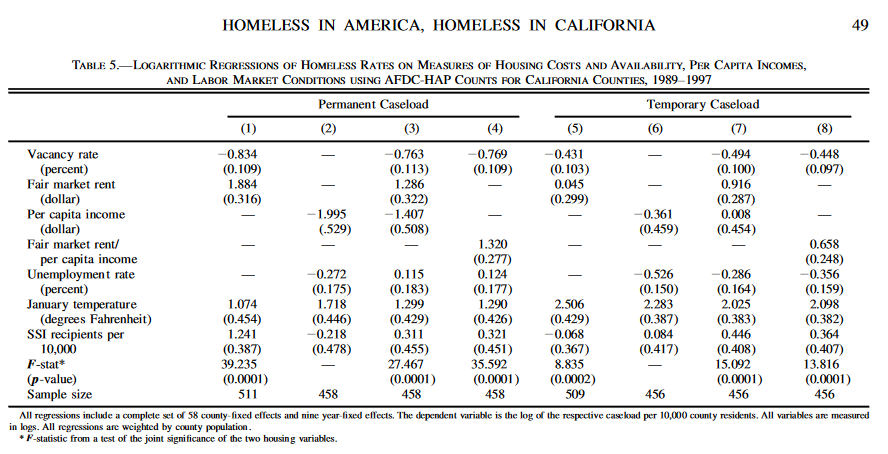Often attributing the causes due to mental illness, previous criminal activity and addiction.
Such attribution is more of a way to blame the homeless for their own actions than a real explanation of the phenomenon, which is specific to the housing market and housing market alone. Mental illnesses, criminal activities and addictions are surely bad things, but they are ought to affect all aspects of life. Nevertheless, the poor (at least in developed countries) are adequately dressed (the fashion statement may not be there, but they're not naked), adequately nourished (again, their diet may not be great but they're not starving), they typically have access to at least basic emergency healthcare, and so on. Yet, some of them are homeless, meaning they lack any sort of permanent shelter whatsoever, and some of them die from the lack of it every winter.
does home price or rent play into the phenomenon of homelessness?
Rents indeed play the crucial role (specifically those of basic accommodations), while house prices only correlate with homelessness as far as they affect rent prices. Think of a homeless who finally got a stable income source: they will immediately look for a place to rent, they won't be shopping for a house right away.
Another part of the correlation between homelessness and house prices comes from the fact that many homeless beg for money or food, which works much better in crowded cities where house prices are also higher. This is a correlation without causation: if the house market in such a city sinks (which doesn't immediately affect the rents), the number of homeless will not change substantially.
For instance, according to Wikipedia the number of homeless per 100'000 in England was steadily decreasing between 2003 and 2009, while the average house prices were growing until 2007 and then sank rapidly in 2008 and 2009.
